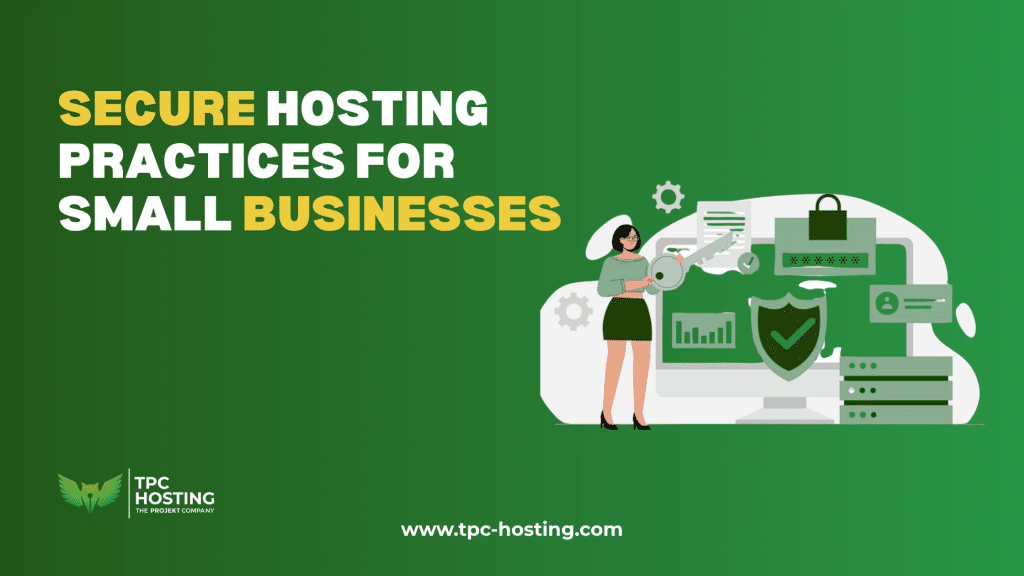
How SMEs With Secure Hosting Practices Can Protect Your Data
As businesses increasingly shift to the online space, protecting customer data has become a vital responsibility for small and medium-sized enterprises (SMEs). Whether it’s an e-commerce platform, a creative agency, or a service-based company, every SME collects sensitive customer details — from names and emails to payment information — that demand strong and reliable data protection measures.
Yet, many SMEs underestimate the importance of secure web hosting in safeguarding this data. A single security lapse can lead to severe reputational damage, loss of customers, and even legal penalties under regulations like GDPR.
In this post, we’ll explore how SMEs can protect customer data by adopting secure hosting practices and what to look for when choosing a reliable hosting provider.
1.Start with a Hosting Provider That Prioritizes Security
Your hosting provider forms the foundation of your website’s security. Choose one that offers built-in protection mechanisms such as:
- Firewall and DDoS protection to prevent cyberattacks.
- Regular security audits and monitoring to detect suspicious activity early.
- Isolation for shared hosting accounts to ensure that one compromised site doesn’t affect others.
Before signing up, ask your host what security protocols they follow and how often they update their systems.
2.Use SSL Certificates to Encrypt Data
An SSL certificate (Secure Sockets Layer) encrypts the data transferred between your website and your customer’s browser. It ensures sensitive information such as login credentials and payment details remain private.
Modern browsers even flag websites without SSL as “Not Secure,” which can scare away potential customers. Choose hosting plans that include free or automatic SSL installation — it’s a simple yet powerful way to build trust.
3.Keep Your Website Software Updated
Outdated plugins, CMS versions, and scripts are common entry points for hackers. Ensure that:
- Your content management system (CMS), such as WordPress, is always running on the latest version.
- You update themes and plugins regularly.
- You remove unused applications or extensions that may pose risks.
Some managed hosting providers handle automatic updates for you — a huge advantage for teams without dedicated IT support.
4.Enable Regular and Encrypted Backups
Even the most secure systems can experience data breaches or corruption. Regular backups ensure you can quickly restore your website without losing customer data.
Look for hosts that provide:
- Automated daily or weekly backups
- Offsite or cloud backup storage
- Encrypted backup files to prevent unauthorized access
Backing up your website is not just a recovery measure — it’s a proactive part of your data protection strategy.
5.Implement Two-Factor Authentication (2FA)
Adding two-factor authentication to your hosting and CMS login prevents unauthorized access even if passwords are compromised. Many hosting providers and website management tools now offer 2FA integration.
Encourage your employees or administrators to enable it for all accounts handling customer data.
6.Monitor and Log All Website Activity
Monitoring tools can help you detect unusual login attempts, file changes, or malware injections before they become serious threats.
Choose a hosting provider that offers real-time security monitoring and access logs. These insights help identify vulnerabilities and ensure accountability if a breach occurs.
7.Stay Compliant with Data Protection Regulations
SMEs operating in regions governed by data protection laws like GDPR, CCPA, or HIPAA must ensure their hosting environment meets compliance requirements.
Your hosting provider should:
- Offer data centers located in compliant regions
- Support data encryption at rest and in transit
- Provide clear data handling and privacy policies
This not only protects your business legally but also enhances customer confidence.
8.Educate Your Team on Security Best Practices
Technology alone can’t safeguard data — people play an equally vital role. Conduct regular training for employees on:
- Recognizing phishing attempts
- Using strong, unique passwords
- Handling sensitive customer information responsibly
Even a small mistake, like clicking a malicious link, can jeopardize your entire system.
Final Thoughts
For SMEs, secure hosting is more than a technical feature—it’s a business necessity. Investing in the right hosting for SMEs and following strong security practices helps you protect customer data, build trust, and maintain your brand reputation.









